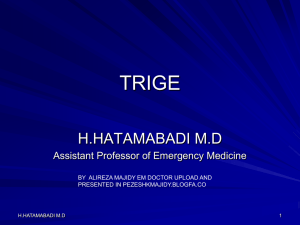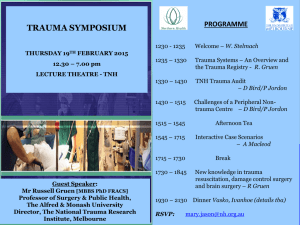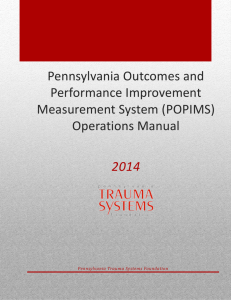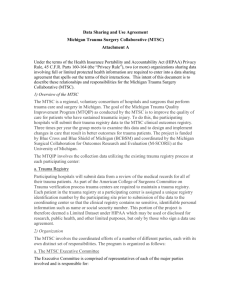The Trauma Program Manager
advertisement
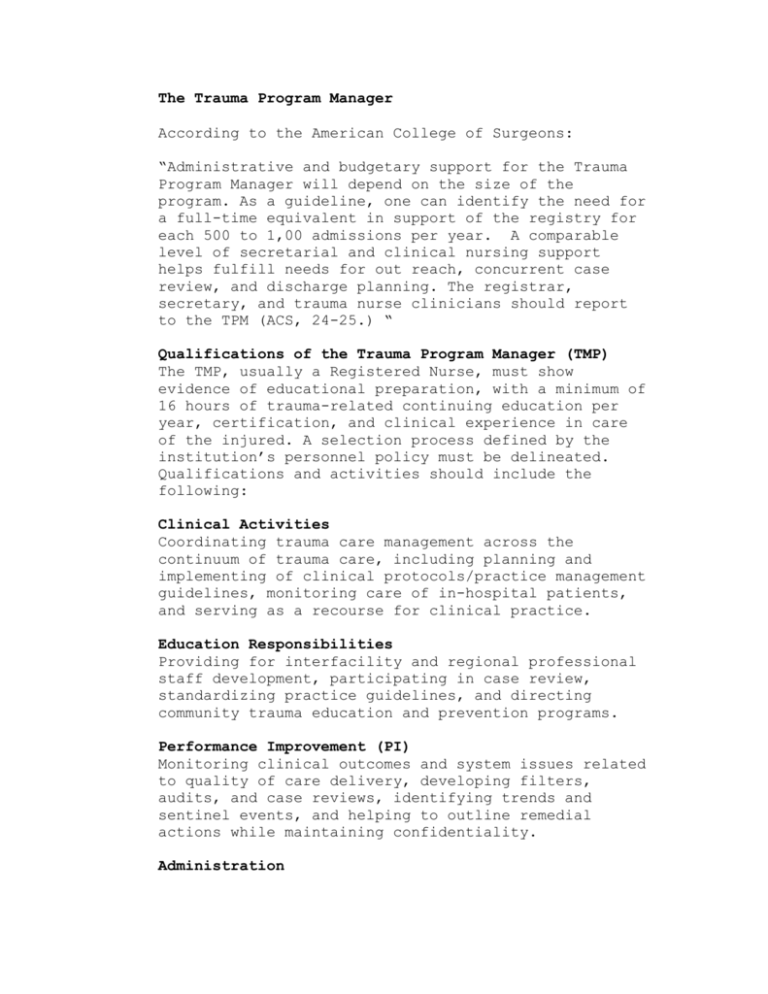
The Trauma Program Manager According to the American College of Surgeons: “Administrative and budgetary support for the Trauma Program Manager will depend on the size of the program. As a guideline, one can identify the need for a full-time equivalent in support of the registry for each 500 to 1,00 admissions per year. A comparable level of secretarial and clinical nursing support helps fulfill needs for out reach, concurrent case review, and discharge planning. The registrar, secretary, and trauma nurse clinicians should report to the TPM (ACS, 24-25.) “ Qualifications of the Trauma Program Manager (TMP) The TMP, usually a Registered Nurse, must show evidence of educational preparation, with a minimum of 16 hours of trauma-related continuing education per year, certification, and clinical experience in care of the injured. A selection process defined by the institution’s personnel policy must be delineated. Qualifications and activities should include the following: Clinical Activities Coordinating trauma care management across the continuum of trauma care, including planning and implementing of clinical protocols/practice management guidelines, monitoring care of in-hospital patients, and serving as a recourse for clinical practice. Education Responsibilities Providing for interfacility and regional professional staff development, participating in case review, standardizing practice guidelines, and directing community trauma education and prevention programs. Performance Improvement (PI) Monitoring clinical outcomes and system issues related to quality of care delivery, developing filters, audits, and case reviews, identifying trends and sentinel events, and helping to outline remedial actions while maintaining confidentiality. Administration Managing, as appropriate, the operational, personnel, and financial aspects of the Trauma Program, serving as a liaison to administration, and representing the Trauma Program on various hospital and community committees to enhance and foster optimal trauma care management. Supervision of the Trauma Registry Collecting, coding, scoring and developing processes for validation of data and designing the registry to facilitate performance improvement activities, trends reports, and research while protecting confidentiality. Consultant/Liaison Stabilizing the complex network of many disciplines that work in concert to provide high-quality care, serving as an internal resource for staff in all departments, and acting as an extended liaison for Emergency Medical Services agencies, the community, and the nation. Research Being involved in research selection, analysis, and distribution of findings, and facilitating protocol design for accurate data collection, feed back, and analysis. Community/National Involvement in Trauma Care Systems Participating in the development of trauma care systems at the community, state, provincial, or national levels (ACS, p.25.) References: 1. American College of Surgeons, (1999). “ Resources for Optimal Care of the Injured Patient: 1999”, USA. p. 24-25.





